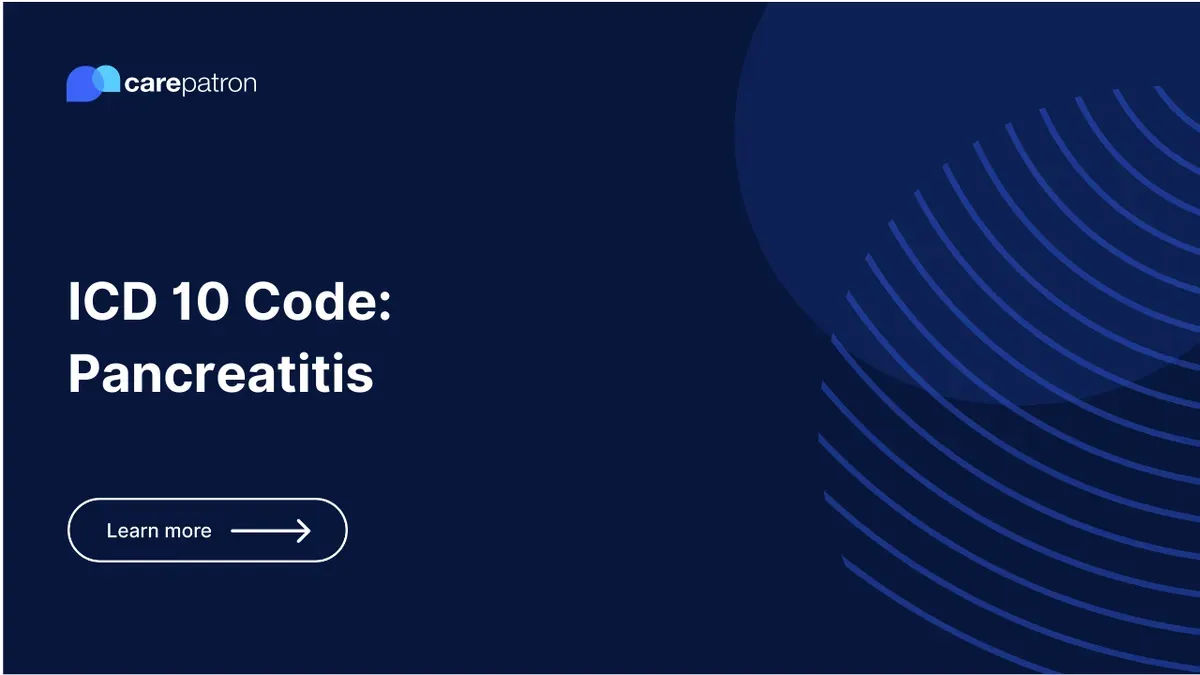
Pancreatitis ICD-10-CM Codes
Explore the ICD-10 codes used for pancreatitis. Understand these codes' meaning, application, and importance in medical billing.
Use Code
Commonly asked questions
Healthcare providers use a Pancreatitis ICD code for classifying and documenting a diagnosis of pancreatitis in a patient's medical record. This allows for standardized communication and understanding between healthcare providers and aids in billing processes. The specific code used depends on the form of pancreatitis diagnosed, such as acute or chronic, and other details of the condition.
Common treatments for pancreatitis often involve hospitalization to manage pain and provide supportive care, such as intravenous fluids. Once the inflammation is under control, treatment focuses on addressing the underlying cause of pancreatitis. This could include removing gallstones or making lifestyle changes, such as abstaining from alcohol.
A diagnosis code for pancreatitis signifies that a patient has been diagnosed with inflammation of the pancreas. The code provides additional details about the condition, such as acute or chronic. For example, ICD-10 code K85.9 indicates an unspecified form of acute pancreatitis.
EHR and practice management software
Get started for free
*No credit card required
Free
$0/usd
Unlimited clients
Telehealth
1GB of storage
Client portal text
Automated billing and online payments
